Orchestrated Performance and Film Discussion
Wednesday, October 23, 2024 at 7:30 PM
David Rubenstein Atrium at Lincoln Center
1887 Broadway, New York, NY 10023
FREE
There are two ways to access this free event:
General Admission, first-come first-served. Just show up!
Fast Track, opening the Monday before the event at noon.
Join us for a conversation with award-winning filmmakers and artists. The framework of DEI as an ethos to rebalance access and growth in the arts didn’t begin in the 2020s. Orchestrated is a new documentary feature film that traces the winding pathway of the past, present, and future of Black classical musicianship from the forgotten legacy of the 1930s Negro Symphony Orchestra founded under the leadership of Harlem’s leading activists and thinkers to The Metropolitan Opera’s premiere of Terence Blanchard’s Fire Shut Up in My Bones in 2021. Following the conversation, the evening concludes with a musical performance by pianist Kyle Walker and violinist Katherine Dennis, playing the Harlem Renaissance era composer William Grant Still’s Suite for Violin and Piano (1943) and Sonata for Violin and Piano in F Minor, op. 5 (1902) by Ignatz Waghalter, the groundbreaking Polish-Jewish conductor-composer and organizer of the NSO.
Moderator:
Celeste Headlee (Radio journalist/Author/Granddaughter of William Grant Still)
Panelists:
· Kyle P. Walker (Pianist /NYU)
· Sam Pollard (Award-winning Director and Producer)
· Alex Walker (Conductor/The Royal Academy of Music)
· Natalia Iyudin (Writer /Director)
· Ross Kauffman (Academy Award-winning Director)
Orchestrated tells a story of the fight for a place in the classical music world that had long been on the minds of Black leaders at the forefront of social and cultural thought. Numerous attempts had been made to establish a symphony orchestra of professional African American musicians who, with Black composers and opera singers, had been excluded from major stages. The Negro Symphony Orchestra in Harlem from 1937-40 was unique in its concerted effort to create a permanent structure woven into the fabric of Black civil society. It was also a unique example of Black and Jewish collaboration in classical music on this scale. As such, the Orchestra’s story also encompassed the fight against antisemitism and xenophobia in the person of its catalyst, a Polish–Jewish composer and conductor, Ignatz Waghalter.
The NSO began at the Harlem YMCA in 1937 under the direction of WWI Army Bandmaster Alfred Jack Thomas and the management of esteemed African American tenor Leviticus Lyon. Their goal was to establish a permanent African American orchestra on the model of other major American orchestras—a long-held desire of Harlem Renaissance leaders like writer and civil rights activist James Weldon Johnson, composer William Grant Still, and writer Alain Locke. In 1938, Ignatz Waghalter, a refugee from Nazi Germany and advocate for Black opera singers in Germany, was named music director of the Orchestra at the Harlem YMCA, with Thomas as Assistant Conductor. Together, they built an organization of over 100 musicians. They rehearsed, established by-laws and a board of prominent Black civic leaders, gained the support of such luminaries as Judge James S. Watson, Tax Commissioner Hubert T. Delany, and choral conductor Hall Johnson, and incorporated in 1939.
The orchestra publicized itself nationally through the African American press, sent appeals to potential Black and white donors, received invitations to perform nationally, were negotiating to perform at the 1939 New York World’s Fair, planned a Carnegie Hall debut for December, and were working on a European tour. In late 1939, however, tested by the unflinching white elitism of the classical music world, the organization began to fall apart. By 1940, as the United States moved toward a war footing that would get the country out of the Great Depression, the Orchestra was finished. William Grant Still’s influential 1939 essay, “A Negro Symphony Orchestra,” making the case for an orchestra of color, is a major piece of the NSO legacy, as are the fates of its musicians and their descendants who went on to further American music, the civil rights movement, and African American leadership. Ignatz Waghalter believed that art should serve society and said, “Music, the strongest citadel of universal democracy, knows neither color, creed, nor nationality.” This aspiration to reconcile the universal and the particular remains an ideal in today’s classical music landscape.
Ignatz Waghalter (15 March 1881 – 7 April 1949) was a Polish-Jewish composer and conductor born into a musically talented Jewish family in Warsaw. His eldest brother, Henryk, was a renowned cellist at the Warsaw Conservatory. Władysław, the youngest brother, became a noted violinist. Ignatz Waghalter moved to Berlin at 17, studying under prominent figures like Philipp Scharwenka and Joseph Joachim, which led to his admission to the Prussian Academy of Arts. His early works, including the String Quartet in D Major and Sonata for Violin and Piano in F Minor, showcased his talent, earning him the Mendelssohn Prize at just 21.
Waghalter gained recognition as a conductor at the Komische Oper in Berlin and later at the Deutsches Opernhaus, where he premiered several of Puccini’s operas in Germany. This significantly influenced the acceptance of his music in the country. His operas, such as Mandragola and Jugend, were well-received there.
After the financial failure of the Deutsches Opernhaus in 1923, Waghalter moved to the United States, debuting at Carnegie Hall. He became the musical director of the New York State Symphony but returned to Germany due to his attachment to its cultural life. With the rise of the Nazis, Waghalter fled to the U.S. in 1934, where he founded the Negro Symphony Orchestra, advocating for racial equality in music. Limited opportunities marked his later years, but he continued to compose, including his last operetta, Ting-Ling, which he performed shortly before he died in New York City.
In recent years, there has been a renewed interest in Waghalter’s work, with performances and recordings bringing attention to his contributions to music. His legacy serves as a poignant reminder of the cultural losses inflicted by fascism and highlights the ongoing efforts to recover and appreciate the works of composers whose careers were derailed by historical upheavals.

Celeste Headlee is an internationally recognized journalist and radio host, professional speaker and author of bestselling books. Celeste has been the Executive Producer of On Second Thought at Georgia Public Broadcasting and anchored programs including Tell Me More, Talk of the Nation, Here and Now, All Things Considered, and Weekend Edition. She served as co-host of the national morning news show, The Takeaway, from PRI and WNYC, and anchored presidential coverage in 2012 for PBS World Channel. Celeste is a regular guest host on NPR and American Public Media, serves as an advisory board member for ProCon.org and The Listen First Project, and received the 2019 Media Changemaker Award. She is the host of Women Amplified, a podcast from the Conferences for Women, the largest network of women’s conferences in the nation, and also hosts the Freeway Phantom and Big Sugar podcast series. She is the president and CEO of Headway DEI, a non-profit that works to bring racial justice and equity to journalism and media, she also serves on the board for the National Center for Race Amity. Celeste is a trained operatic soprano.
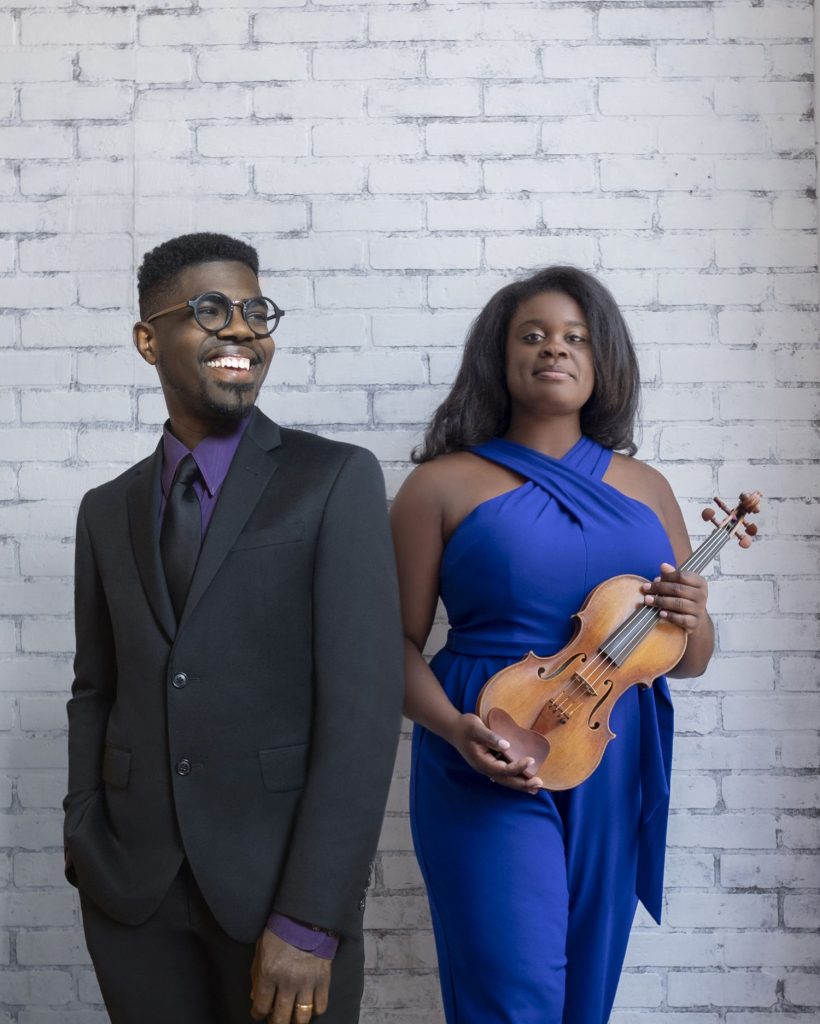
Kyle P. Walker, a renowned pianist known for his passionate dedication to using music as a tool for addressing societal concerns, stands at the forefront of a musical movement. His career has garnered critical acclaim, with notable performances featured on prestigious media outlets like NPR, WQXR, and PBS. He has graced renowned venues such as Carnegie Hall’s Weill Hall, Lincoln Center, The Kennedy Center, The Apollo Theater, and international stages from Australia’s Tantaloona Cave to the Adelaide Town Hall. As an instructor, Walker shares his expertise as a member of piano artist faculty at New York University, the Lucy Moses School at Kaufman Music Center, and The Artist Program at Suzuki on the Island.
Dr. Katherine Dennis has distinguished herself as a performer who creates meaningful musical spaces in which audiences forge deeper connections amongst themselves and the world around them. She has performed in NYC’s most prestigious venues including Carnegie Hall and Lincoln center, and frequently collaborates with local artists and arts organizations. As an advocate for arts education, she has founded and maintained string programs throughout the NYC Metropolitan area and developed curricula that supports the needs of diverse communities of learners. She holds degrees from East Carolina University, McGill University, CUNY Hunter College, and Vanderbilt University.
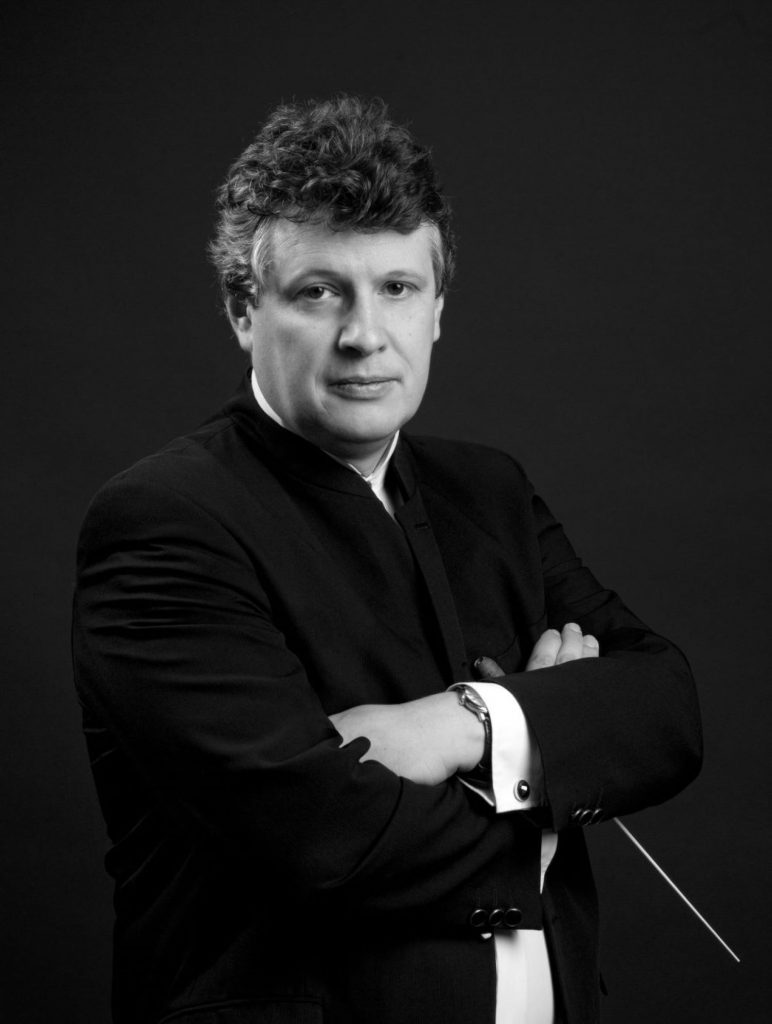
Alexander Walker (Royal Academy of Music) has contributed to the rediscovery and reevaluation of a number of significant composers with his innovative discography, including works by Ignatz Waghalter and symphonies by Havergal Brian. In 2018, the Elgar Society honored him with their highest award, the Elgar Society Medal. He has conducted the BBC Philharmonic, City of London Sinfonia, and Royal Philharmonic Orchestra, among many others. He regularly conducts the Russian State Symphony Orchestra, Musica Viva, Symphony Orchestra New Russia, the George Enescu Philharmonic in Bucharest, the Istanbul State Opera, and the Russian Philharmonic. He has conducted the Royal Ballet; and has served as Music Director for Swan Lake for the Finnish National Opera, and The Nutcracker for the Norwegian National Opera.
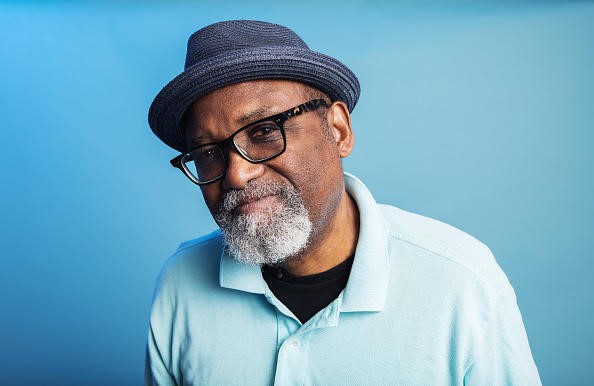
Sam Pollard is an Emmy Award-winning and Oscar-nominated director and producer. His films for HBO, PBS, and the Discovery Channel include the documentaries “Four Little Girls,” “When the Levees Broke: A Requiem in Four Acts”, “Slavery by Another Name,” “Sammy Davis, Jr.”: “I Gotta Be Me,” “ACORN and the Firestorm,” “Why We Hate,” and “Atlanta’s Missing and Murdered: The Lost Children.” Pollard also directed two episodes of the groundbreaking series “Eyes on the Prize.” Since 1994 Pollard has served on the faculty of New York University’s Tisch School of the Arts.
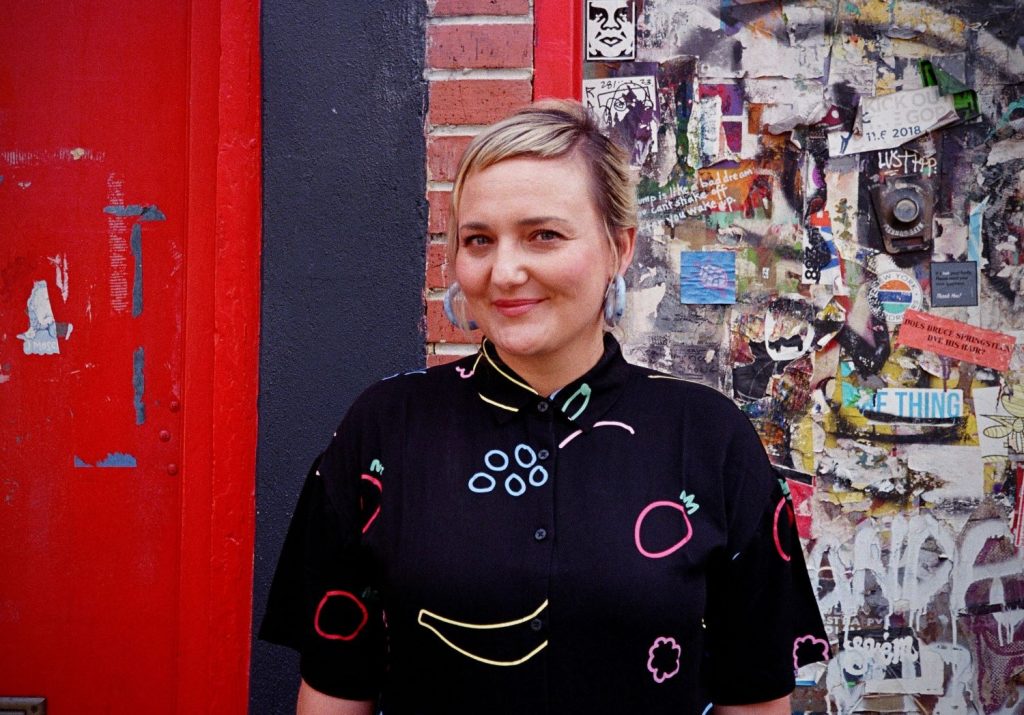
Natalia Iyudin had her start in the industry as a TV editor for MTV, BET and PBS. She has lead development on docu-series “Girly” with Rashida Jones, Refinery29 and the UN Foundation, and “Ladies First: A Story of Women in Hip Hop” for Netflix. She directed for mental health campaigns around teen suicide and opioid crises, and on several projects for Toyota. She co-created and directed “We Got You”, an award-winning digital series featuring Tarik “Black Thought” Trotter of The Roots. Natalia made her directorial TV debut with two episodes of an elevated horror anthology for the Warner Brothers’ Stage 13, “Two Sentence Horror Stories”; currently on Netflix.
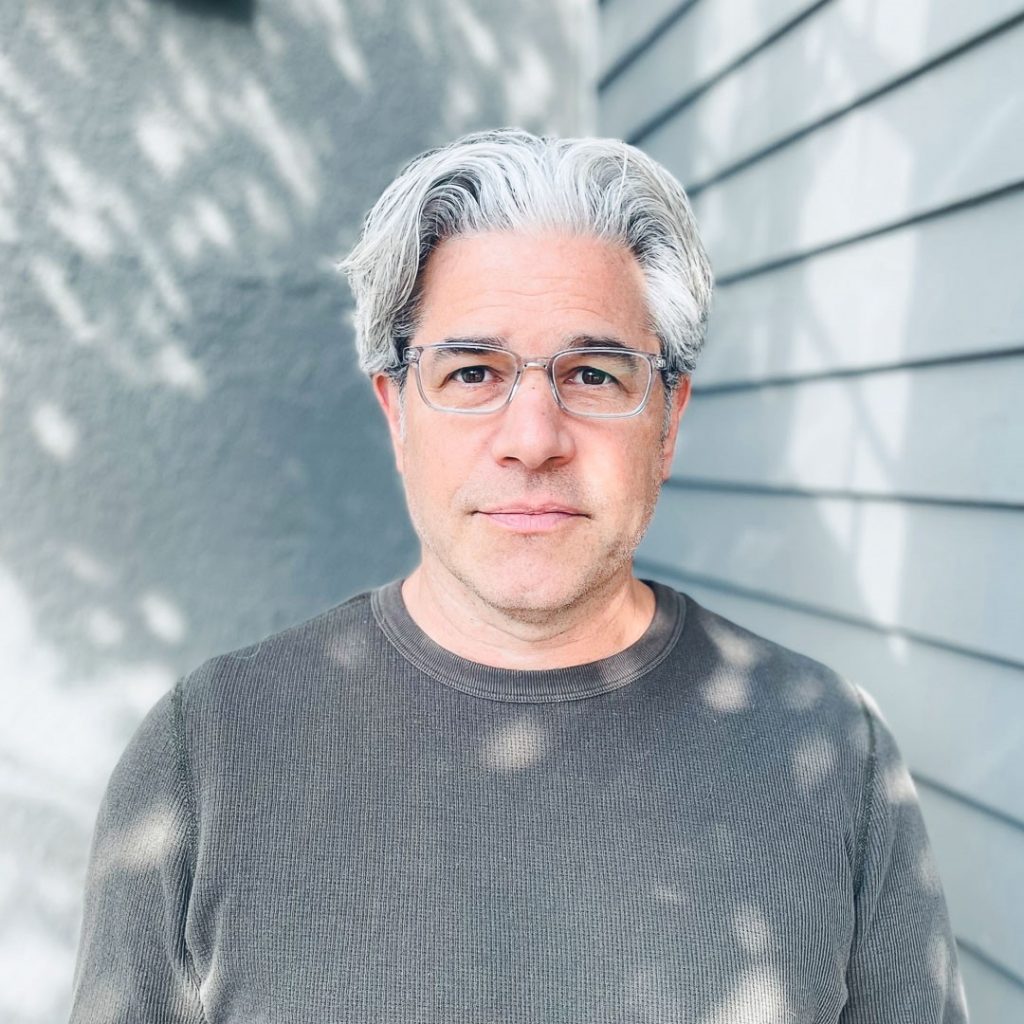
Ross Kauffman is the Academy Award®-winning filmmaker of the documentary “Born Into Brothels.” The film was shown the world over and received a multitude of awards, including the 2005 Emmy Award for Best Documentary, National Board of Review Best Documentary and the Sundance Film Festival Audience Award. In 2014, Ross (with Katy Chevigny) directed “E-Team,” a Netflix Original documentary about four intrepid human rights investigators. The film debuted at The Sundance Film Festival and garnered Kauffman the Best Cinematography Award for a Documentary Feature. His recent films include “Tigerland” (Sundance 2019) and “Of Medicine and Miracles” (Tribeca 2022).
Presented in collaboration with the Polish Cultural Institute New York and Genuine Interest.




